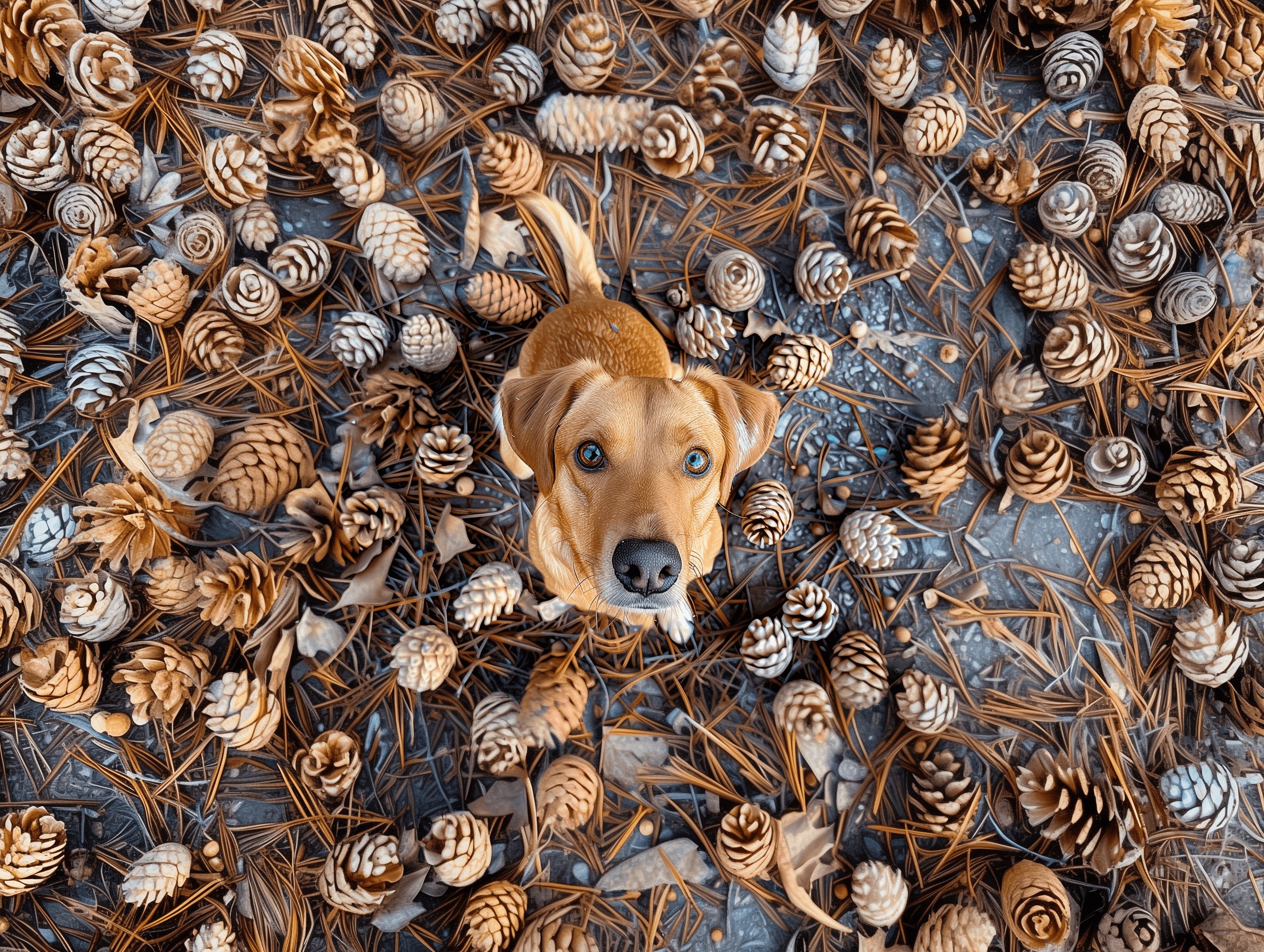
Why Pine Cones Are Dangerous for Dogs to Chew
Are Pine Cones Poisonous to Dogs?
Pine cones are not inherently poisonous to dogs. While they may cause some discomfort or digestive issues if ingested, they are generally not considered to be toxic. However, it is important to note that the size of the pine cone and the individual dog's size can play a role in the potential risks. Small pine cones or those with sharp edges can pose a choking hazard or cause damage to the digestive tract if swallowed. If your dog ingests a pine cone, it is recommended to monitor them closely for any signs of distress or discomfort and consult with a veterinarian if necessary.
What About Decorative Pine Cones?
When it comes to decorative pine cones, it is important to exercise caution. While decorative pine cones are often treated or coated with various substances for preservation or aesthetics, these coatings can be potentially harmful to dogs if ingested. Some coatings may contain toxic chemicals or substances that can cause digestive upset or other adverse reactions. Additionally, decorative pine cones may be adorned with small decorative elements such as ribbons or beads, which can pose a choking hazard if chewed or swallowed. It is best to keep decorative pine cones out of reach from dogs and ensure they are not able to access them.
What Should You Do If Your Dog Eats Pine Cones?
Stay Calm
If your dog has ingested pine cones, it's important to stay calm and assess the situation. Panicking can make the situation worse and cause unnecessary stress for both you and your dog. Take a deep breath and focus on the steps you need to take to ensure your dog's safety.
Remove the Pine Cone Pieces from the Mouth
If you notice that your dog has pine cone pieces in their mouth, it is crucial to remove them immediately. Pine cones can be sharp and may cause injuries to your dog's mouth or throat. Use caution when attempting to remove the pine cone pieces and make sure not to accidentally harm your dog in the process.
Observe Your Dog’s Behavior
After removing the pine cone pieces from your dog's mouth, it's important to observe their behavior. Look for any signs of discomfort, such as excessive drooling, pawing at the mouth, or difficulty swallowing. If your dog seems to be in distress or is exhibiting abnormal behavior, it's best to contact your veterinarian for further guidance.
Contact Your Veterinarian
In case of any concerns or if you suspect that your dog has ingested a significant amount of pine cone pieces, it is recommended to contact your veterinarian immediately. They will be able to provide you with the necessary advice and guidance based on your dog's specific situation. Remember, it's always better to be safe than sorry when it comes to your pet's health.
How to Stop Your Dog From Eating Pine Cones
Remove Temptation
Pinecones can be tempting for dogs to chew on, but it's important to remove this temptation from their environment. While some dogs may simply enjoy the texture and taste of pinecones, they can pose a serious risk to their health. Pinecones can splinter easily, leading to choking hazards and potential blockages in the digestive system. Additionally, the sharp edges of pinecones can cause injuries to a dog's mouth, throat, and digestive tract. To ensure the safety of your furry friend, it is best to keep pinecones out of their reach and provide them with appropriate chew toys instead.
Keep Your Dog Entertained
Keeping your dog entertained is crucial to prevent them from getting bored and turning to pinecones as a source of amusement. Dogs often resort to destructive behavior when they are not mentally or physically stimulated, and chewing on pinecones can be one of those behaviors. To keep your dog entertained, provide them with plenty of interactive toys, engage in regular play sessions, and take them for daily walks or runs. Mental stimulation through training exercises and puzzle toys can also help keep your dog engaged and less likely to seek out pinecones as a form of entertainment.
Use a Leash
Using a leash is a simple yet effective way to prevent your dog from accessing pinecones during walks or outdoor activities. By keeping your dog on a leash, you can have better control over their movements and steer them away from potential hazards, including pinecones. This is especially important in areas where pinecones are abundant, such as parks or forests. Additionally, using a leash allows you to redirect your dog's attention towards other objects or activities, reducing their focus on pinecones.
Train with Treats
Training your dog with treats can be an effective way to teach them to avoid pinecones. Positive reinforcement training involves rewarding your dog with treats when they exhibit desirable behavior, such as ignoring or avoiding pinecones. This can help them associate pinecones with a negative outcome (lack of treats) and encourage them to focus on other activities instead. Consistency and repetition are key in training, so make sure to reinforce the desired behavior consistently and gradually reduce the frequency of treats as your dog becomes more reliable in avoiding pinecones.
Redirect With a Toy
If you notice your dog showing interest in pinecones, it's important to redirect their attention towards appropriate toys. Offering a variety of engaging and durable toys can help distract your dog from pinecones and redirect their chewing behavior. Interactive toys, such as puzzle toys or treat-dispensing toys, can keep your dog mentally stimulated and prevent them from seeking out pinecones for entertainment. Additionally, providing chew toys made specifically for dogs can satisfy their natural urge to chew without the potential hazards that pinecones present. Regularly rotate the toys to maintain your dog's interest and ensure they have a safe and enticing alternative to pinecones.